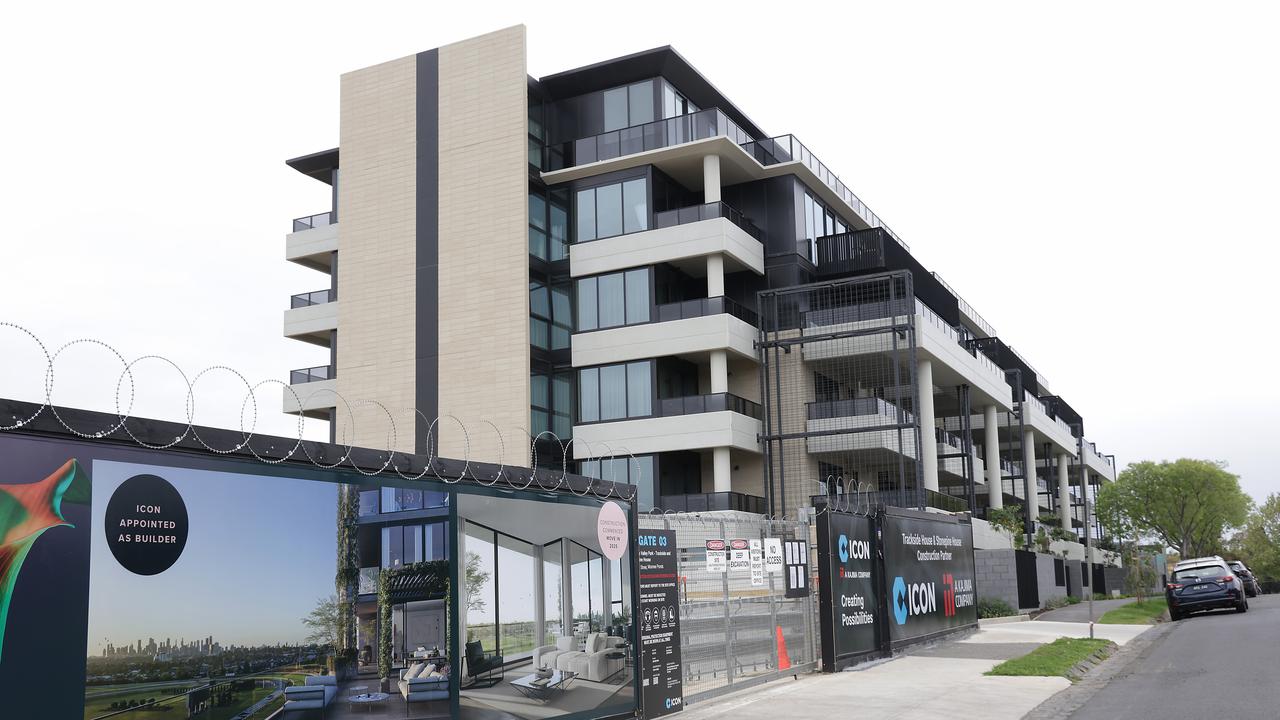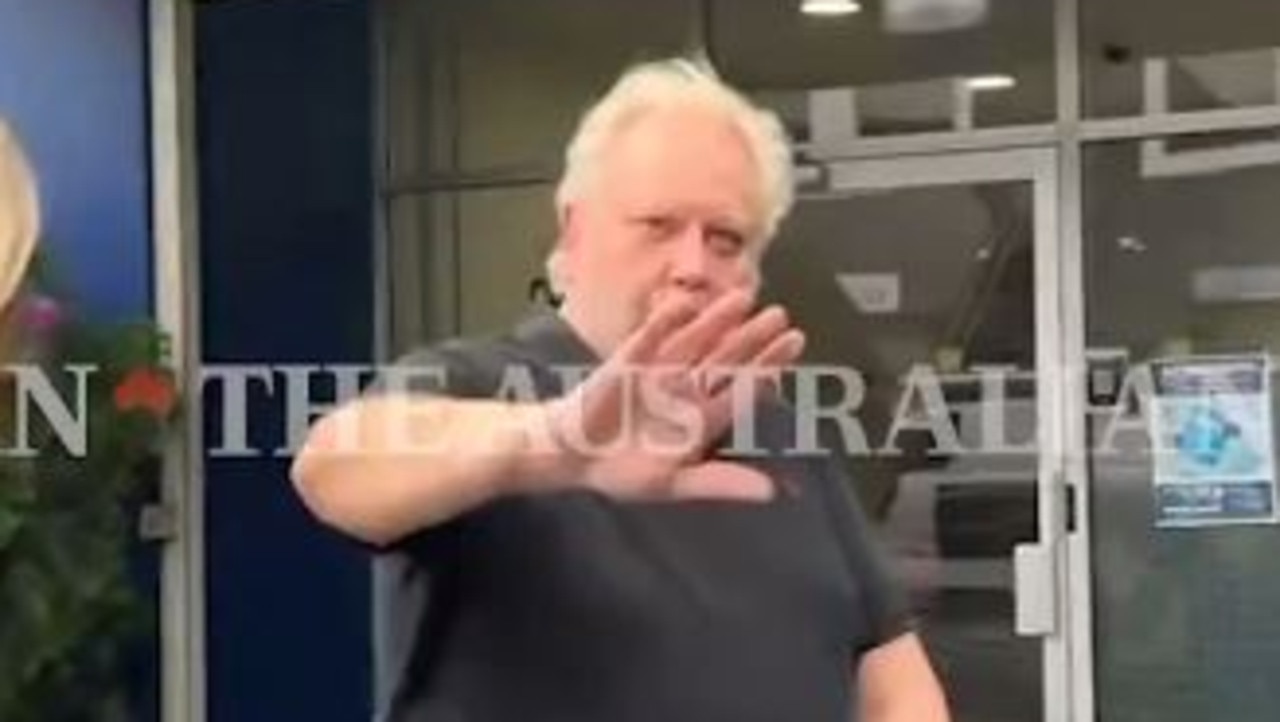Australia’s top CEOs weigh up the threats and opportunities in AI
The nation’s top chief executives are pouring more time, money and energy into harnessing the potential of artificial intelligence to boost customer experiences and profits.
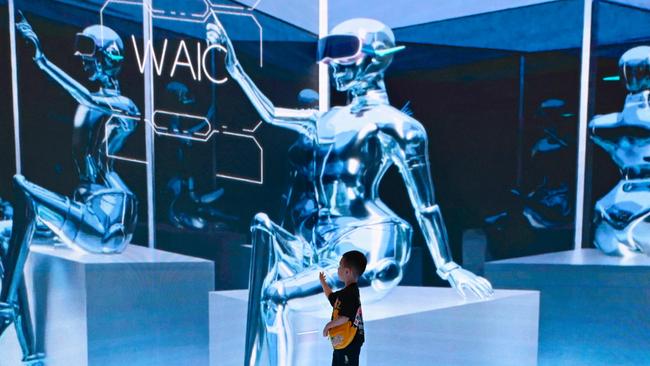
The nation’s most powerful and influential chief executives are pouring more time, money and energy into harnessing the potential of artificial intelligence to boost customer experiences and profits as the technological innovation demands the attention of boardrooms.
However, a gap is beginning to emerge between those companies already racing ahead on AI projects being implemented now in their businesses, and those CEOs who remain more circumspect about the promise of AI versus its cost and are taking a slower path.
Some bosses are adopting a “watch and see” position but say when others can prove the value of AI, they will be ready to pounce.
Midway through the current reporting season, CEOs of some of the largest ASX-listed companies such as Telstra, CSL, Seek, Transurban, Mirvac, Westpac, Seven West, ResMed and Cochlear have shared their thoughts, plans and concerns about AI with The Australian. And it’s not just the obvious industries, such as the banks or technology giants like ResMed and Cochlear, that are embracing AI.
Online furniture and furnishings retailer Temple & Webster is now employing the popular AI-based chatbot ChatGPT to tackle pre-sale product inquiry live chats. It also has big ambitions to launch an AI tool to create interior designs that can encourage product purchases from its site.
Perhaps more adventurous than any other retailer at the moment, Temple & Webster has also bought a one third stake in an Israeli AI and tech company, Renovai. It bought the interest in 2020, well before the AI revolution caught the attention of the public and CEOs in companies outside the pure technology space.
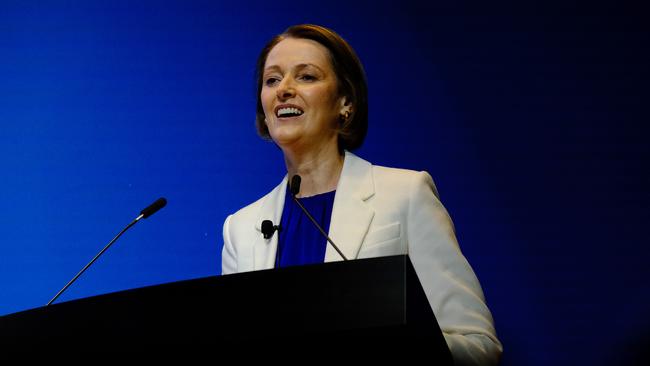
Executives at Treasury Wine Estates, the maker of wines such as Penfolds and Wolf Blass, believe data and AI can help the company cope with fast-changing weather patterns that affect its vineyards.
But what is emerging from reporting season is that AI is mostly attracting the attention and resources of the big end of town, with the tens of millions of dollars needed to build a whole new infrastructure around artificial intelligence.
Telstra boss Vicki Brady spoke to The Australian about what she calls the “incredible potential” that the next stage of AI will deliver, and how the technology is becoming more mainstream.
The chief executive of employment service Seek, Ian Narev, a former banker, put it simply and boldly: “Our current view is that we have to be all over it as a company.”
Outgoing Transurban boss Scott Charlton told The Australian that AI was a “component in the toolbox”, with the toll roads operator harnessing automated incident detection so the cameras on his roads could detect problems.
“We can’t have an operator looking at every camera, so we use automated AI technology to notice if something’s behaving on the road that’s a little bit different. It picks that up so our operators can deal with it immediately.”
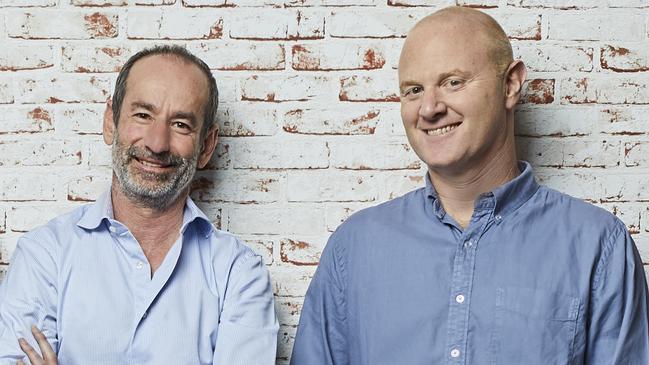
Professional services giant KPMG has rolled out AI within its workforce, revealing at the partnership’s latest results presentation plans to deploy the functionality in its auditing practice to “drive improvements to audit quality, efficiency and accuracy”.
Australia was one of the pilot markets for the firm’s AI software, which incorporates “advanced statistical, machine learning and rules-based analytics” to review transactions in client data and classify them as low, medium or high risk.
At financial services company Challenger, CEO Nick Hamilton has built a significant in-house technology team and function. But he wants to learn more – a common theme when chatting to CEOs and directors.
He recently returned from a tour of Israel, looking at AI technology in what is seen as the biggest tech and innovation hub outside Silicon Valley.
Back at Telstra the new CEO is taking the challenges and threats of AI very seriously. She says more and more of her conversations these days include the topic.
“I think the thing that everyone is talking about, and certainly in conversations I’m in with business leaders here in Australia at the moment, everyone can see this incredible potential with this next stage of what AI will deliver,” Ms Brady said.
“AI now is very mainstream, not something that is sitting in the background.
“I think it’s important to remember it’s all about demand for that technology that is out there. It needs really great connectivity. So that foundational piece of all of the infrastructure and network that needs to be there goes hand in hand with the views and what I’ve talked about. It’s only going to generate more demand for that infrastructure, which we already have strong demand for today.”
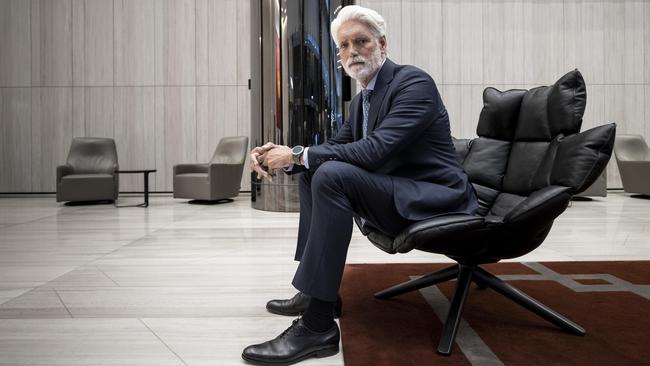
In the realm of healthcare AI has the potential to really change people’s lives, to cure sicknesses, find new treatments and capture efficiencies that can redirect once wasted health budgets into key frontline services, drugs and equipment.
Many ASX-listed companies have the size and resources to fund ventures in AI.
Colin Goldschmidt, chief executive of pathology group Sonic Healthcare – which has a market value of $16bn – has made several investments in the technology, saying it would provide a “step change” in delivering efficiency, quality and capacity in coming years.
Sonic backed artificial intelligence start-up Harrison.ai’s $129m Series B funding round in 2021, acquiring a 20 per cent interest in the group and forming a separate joint venture called franklin.ai. Dr Goldschmidt said laboratory medicine informed almost every aspect of modern medicine, especially the diagnosis of cancer.
“With franklin.ai, we are taking a big step forward in the field of digital pathology, and we look forward to playing a leadership role in this important new area of modern medicine,” he said.
“The venture aims to support a more effective and efficient diagnosis of patients in anatomic pathology and laboratory medicine by providing pathologists with ‘a second set of eyes’.
“We are investing in IT and infrastructure, including for digital pathology, to unlock these material upsides.
“Our Franklin.ai joint venture is nearing completion of its first AI product, with validation studies and field trials to commence in early 2024.
“Harrison.ai … continues to progress its radiology AI joint venture and Sonic is already using their chest X-ray product throughout our radiology operations, whilst the second product, for brain CT, is currently being evaluated by our practices.”
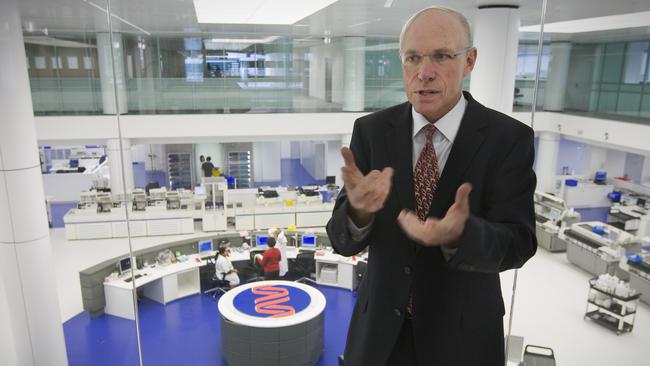
Sleep apnoea giant ResMed has been testing its own AI platform. Chief executive Mike Farrell said the technology would free nurses from performing menial tasks in monitoring sleep health – a handy development given Australia is battling a chronic nurse shortage, with a projected shortfall of 85,000 by 2025.
“Imagine if you have a ‘smart nurse’ that’s AI and it’s running the work and analysing who you should talk to and taking care of things like texts and emails and stuff that needs to happen to treat easy problems. The FAQs can be taken care of,” Mr Farrell said.
“Then it can raise things for you with the respiratory therapist, saying ‘hey, this needs a live human call’.
“It sounds simple, just in concept. But there has been years of development, months of refining and we’re at the stage now where we’re sort of optimising those data products that they’re in testing phases. And I think over this fiscal year as we start to launch these – with 15 billion nights of data and 20.5 million cloud-connected devices – the impact when you turn that on will be pretty huge.”
Hearing implant giant Cochlear, which has a $16.2bn market value, has partnered with Google and Australian audiology researchers to adapt technology similar to what film director Peter Jackson used to restore audio in The Beatles’s Get Back documentary.
Cochlear chief executive Dig Howitt said the partnership was progressing well.
“It highlights the broad interest in hearing loss. We are very excited and we welcome the opportunity for broader research, and AI does present an opportunity in a number of ways in our business,” Mr Howitt said.
“Certainly, through some operational areas and then in terms of the potential for signal processing and eliminating background noise, there‘s lots of exciting prospects but it’s early days.”
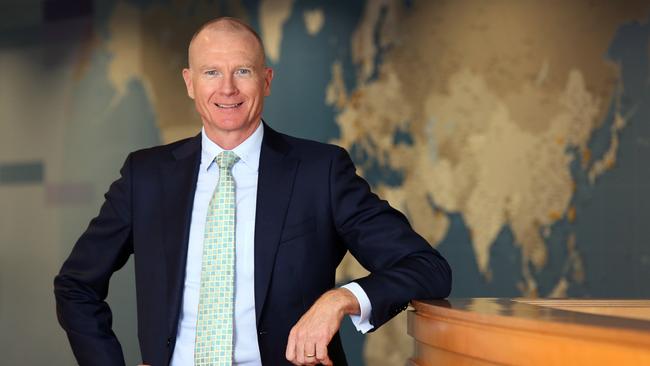
Australia’s biggest health company CSL, which has a market capitalisation of $130.31bn, explained in the reporting season that it was looking at how AI could improve the management of plasma donors in the US.
Chief executive Paul McKenzie, who replaced the long-serving Paul Perreault in March, said he was intrigued by the technology. And it couldn’t come at a better time, given the cost of collecting plasma – the raw ingredient needed to produce CSL’s suite of lifesaving immunoglobulins, conventional haemophilia treatments and albumin protein – is unlikely to fall to pre-pandemic levels for at least another three years, dragging on profitability.
Dr McKenzie said CSL was looking at a suite of solutions, given blood donor fees and labour comprise about 65 per cent of the cost of collecting a litre of plasma, with AI and data analytics near the top of the list.
“I’m intrigued by what this whole journey of AI and ChatGPT will do for training, bringing on employees up to beneficial use earlier. I mean, there are lots out there,” he said.
“We really have increased our competitive intelligence of what the donor fee mix looks like, and then we respond to that using data analytics and donor app to get the right mix of donors.”
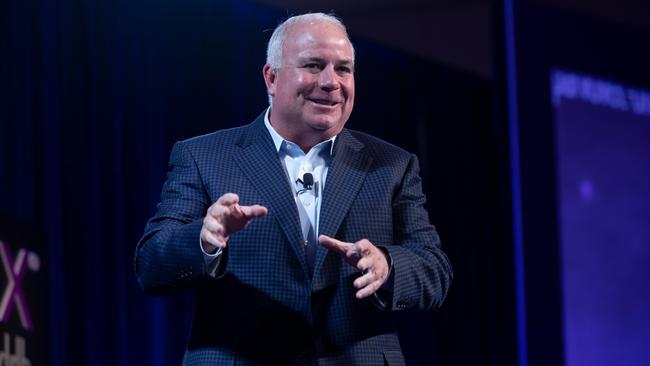
Westpac chief technology officer David Walker said the bank had been working with generative AI for about two years.
“We’ve been working with some of our technology partners on that for two years, and we’ve been developing with them what’s called an industry large language model.
“It’s been a really big focus for us for quite a number of years now. And we’ve been running a series of experiments, and really trialling the technology. One of our big focus points of that, is to ensure that we are fully confident that the technology is safe to use, it’s got all the right in-built controls, and we want to make sure that it follows all the principles around responsible AI, etc. I think this truly is a transformative technology.”
Former CBA boss Ian Narev knows all about the reach and power of technology and its ability to improve customer service, operations and shareholder returns. He is now thinking about how he can use it at his online employment services group Seek.
“We have been experimenting with language models recently and the rate of change in the AI space just in the past few months alone has been enormous,” he said. “Our current view is that we have to be all over it.”
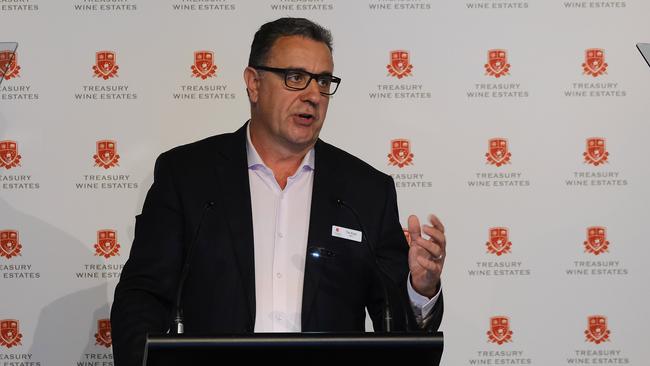
Treasury Wine Estates boss Tim Ford is enthusiastic about the benefits AI could bring to predicting weather patterns and how this could help his large portfolio of vineyards.
“For us it’s how we use data to make decisions based on facts rather than opinion. We’re spending a lot of time and investment in data through our vineyards, to understand how we use that to predict better and future farming practices, future weather patterns, future requirements around water usage, etc.”
Mirvac managing director Campbell Hanan said: “We are certainly playing with AI.
“It’s a great opportunity for us to change manual processes, particularly around customers and how we deal with customers. There’s now a huge opportunity to automate that through AI.”
Others are adopting a ‘watch and wait’ approach.
Amcor CEO Ron Delia said it wasn’t clear yet what AI could have to offer for the manufacturing and packaging industries.
And Seven West CEO James Warburton said the media industry needed to look at ways AI was using their content and take appropriate action.
“Obviously it’s an opportunity and it’s also something we need to look at as a media industry, we probably all need to consider, similar to the collective bargaining code in terms of Google and Facebook,” he said.
“It‘s something we should all be thinking about because it’s taking a lot of our content.
“I think for us it is just more a case of the art of the possible, where might there be uses within our business.”
Additional reporting: Paulina Duran, Jared Lynch, Chris Herde, Giuseppe Tauriello, Matt Bell, Sophie Elsworth, Tansy Harcourt
More Coverage
Originally published as Australia’s top CEOs weigh up the threats and opportunities in AI




